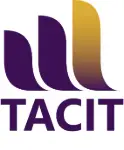In a week when Bitcoin’s year-to-date gains have been dramatically wiped out, we decided it’s important to write about how this asset actually behaves. We don’t invest in cryptocurrencies within the Tacit strategies because they currently provide no income or cashflow return that would allow us to value them with any confidence.
Bitcoin’s supporters often describe it as a new kind of money, one that operates independently of governments and banks. They see it as a digital alternative to both traditional currency and gold, designed to store and transfer value securely over time. What makes Bitcoin distinctive is its decentralisation: it runs on a global network of computers rather than through any central authority, making it resistant to censorship or control.
Proponents point to its limited supply as a key advantage. Only 21 million bitcoins will ever exist, which they believe makes it a potential hedge against inflation and currency devaluation. Because its supply cannot be expanded at will like fiat money, enthusiasts often call Bitcoin “digital gold.” This scarcity, combined with growing global adoption, underpins the argument that Bitcoin could preserve purchasing power over the long term.
Transparency is another perceived strength. Every transaction is recorded on the blockchain, a public ledger that anyone can verify. This record-keeping, paired with strong cryptographic security, removes much of the reliance traditionally placed in intermediaries like banks or payment processors. Beyond this, Bitcoin’s supporters argue it offers genuine financial freedom, particularly in regions where banking access is limited or local currencies are unstable. It enables fast, borderless transactions accessible to anyone with an internet connection.
Yet many financial experts caution that Bitcoin carries significant risks. Its price can swing dramatically in short periods, meaning investors risk losing substantial value quickly. Unlike traditional investments, Bitcoin produces no income or dividends, its value depends entirely on demand and market confidence. Security also rests with the user: losing your private key can mean losing access to your Bitcoin permanently.
Whether these beliefs prove accurate over time remains to be seen, but proponents view Bitcoin as an innovation capable of reshaping how people think about money, value, and economic independence.
At Tacit, we don’t currently view cryptocurrencies as assets in the traditional sense. Whether Bitcoin and other alternatives will become a genuine means of exchange over fiat currencies or a store of value like gold remains unclear to us. For this reason, we can only use its price behaviour over the past decade as an indication of its function in the world today.
What we observe is telling. At present, and especially since Covid, Bitcoin’s price has shown a very high correlation to the Nasdaq Technology index, both on the upside and, more importantly, on the downside. This means its behaviour is that of a growth asset rather than a stabiliser. Until this pattern changes, we see no reason to speculate with our clients’ money.

